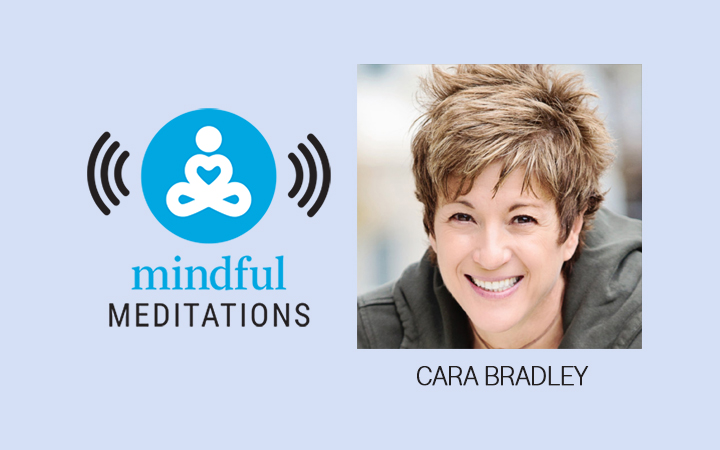We’re going to be exploring how our minds work and how to work with our minds.
We form habits in a very specific way, which is great news. It means this is a system that can be observed, examined, and even altered. But first we need to understand how it all works.
In these four sessions, we’ll begin by learning how a habit gets formed in the mind and body. We’ll get more concrete in the second session, exploring habits that are formed around eating. Then, in the third session, we will work with habits around our cell phones. In the fourth and final
The goal here is to first understand the mechanics and observe them at work in our mind and body; then, by bringing awareness, and injecting curiosity and kindness into the process, we look at specific habits we might have. We might even manage to change a few habits in the process. But the first and most important thing is to get better at recognizing when our habit loops flare, and get good at observing what happens in our mind and our body when that happens.
These explorations are cumulative, so I encourage you to do them in order. Understanding the mechanics of how habits get formed is the subject of this first practice—and this prepares you for the greater challenge of working with specific habits around food, phones, and stress.
What is a Habit Loop?
Let’s look at how the mind actually works when it comes to forming (and maintaining) habits. In fact, let’s call them habit loops. They have a pretty simple, and consistent, formula: there’s a trigger; there’s an accompanying behavior
For example, let’s look at habits that get formed around smoking cigarettes: There could be stress (trigger) that moves someone to go outside for a cigarette (behavior); and then, for a brief time, that initial stress is reduced (reward). Our brains simply recognize that a particular behavior—in this case, smoking—alleviates, however briefly, the feelings that the initial trigger sparks in us. So with that reward of lowered stress, the brain says, essentially: go do that behavior again.
Trouble is, smoking the cigarette does not fix the root of the problem. That smoker still has to go back in to face his unruly classroom or her angry boss or that looming deadline. But what does get reinforced is the behavior—and all it takes is that little bit of stress relief that keeps us going back to the perceived stress reliever, in this case the cigarette.
So, what we want to begin doing with this practice is learn to raise our awareness of our own habit loops and get more adept at observing their mechanics. It’s helpful to think in terms of gears here: Being in habit mode is like being on autopilot—we go through our day, habitually reacting to whatever stimuli we encounter. But first gear is recognizing what our habits are. And this basic practice can help you get there.
Hack Your Brain’s Habit Loops
Watch the video:
Listen to the practice:
Hacking Your Brain’s Habit Loops
Read the practice:
- Get comfortable and anchored in your physical body. You can be standing, sitting or lying down for this practice; aim for being at ease and alert. Bring your awareness to the physical sensations in your body or your breath—whatever is most available and predominant for you. Be curious. For example, ask yourself: what does my breath feel like right now?
- Become aware of any thoughts that are arising. Maybe you’re encountering a few triggers already: thoughts spurring you to think about the past or the future; regrets, fantasies, planning for next week or anticipating your next vacation. Each time a trigger-like thought arises, simply note it as “trigger” or “thinking.” If you wake up in the midst of a fantasy, regret, worry or thought, note that as “thinking” as well. Check in with the attitude of your mind from time to time, too: Am I resisting thoughts or trying to make them go away? Am I holding on to certain thoughts? If that’s the case, simply notice resistance or holding on or craving. See if you can bring a truly curious attitude to it all as opposed to judgment. That way, you’ll be primed to really investigate and notice what thought streams arise rather than get caught up in them.
- Become aware of any type of habit loop that arises. As you grow in awareness of your physical sensations and your thoughts, plant in this mind-stream an aspiration to look out for any type of habit loop. Maybe a craving has occurred to you? Maybe a desire to check your phone? If noticing triggers or habit loops or specific mental behaviors seems too much, simply stay grounded in the physical sensations of your breath or your body.
Our minds are set to form habits through a trigger-behaviour-reward system. See how many different habit loops you can recognize in your life. Ask yourself: What are my triggers? What are the habitual behaviors I go to, whether mental or physical? What are the results or rewards that come from these behaviors? Welcome to mapping your habit loops. As we begin to drive in first gear, we move out of autopilot and into being with ourselves and with those loops just as they are. We’ll work with them more closely in the next session, but for now, simply mapping this territory of your mind so you can see your habit loops more clearly is preparing you for expert driving up ahead.
Explore Session #2
Rewire Your Food Cravings and Triggers
Bringing awareness to our food cravings can change our relationship to them—we can be with that craving rather than be caught up in it.
Read More
More mini-COurses
Tune Into Your Body with Cara Bradley
Learn to use your body as a tool for mindfulness practice shift into a state of calm and ease.
Read More



